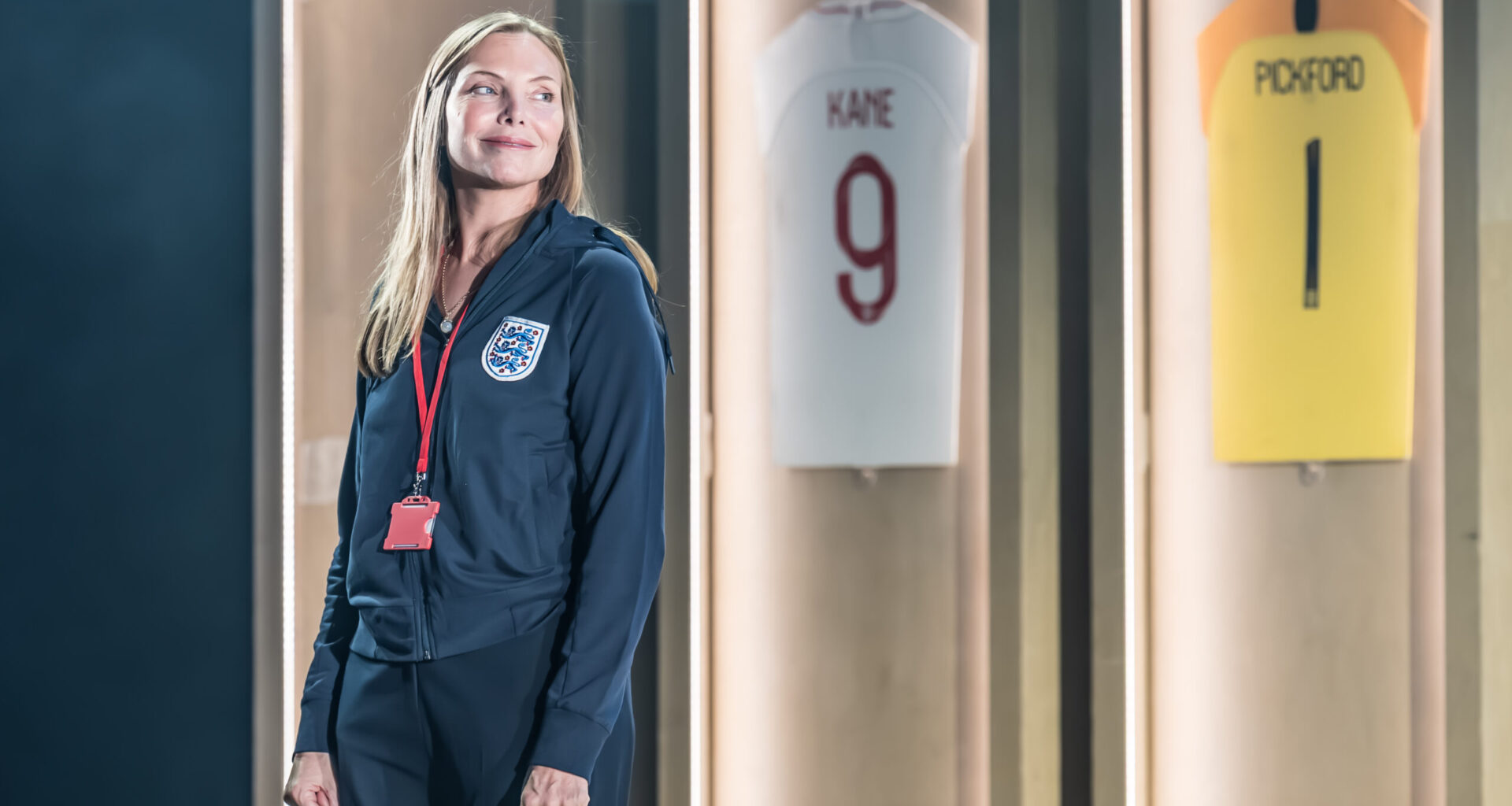Writer: James Graham
Director: Rupert Goold
This was, as they say, a play of two halves, the second much better despite a rush through the closing events, hardly surprising as they hadn’t even happened when James Graham first completed the play. The first half is wonderfully energetic in places, Rupert Goold’s direction a masterly deployment of a cast of 23, some playing as many as five parts. However, the tone fluctuates between serious and caricature. The sound played over the scene changes could better be described as a noise: as the evening wears on, the ear become accustomed to explosive sounds, though they still contribute little. Certainly, though, the National Theatre production, in association with JAS Theatricals, has an admirable slickness and gloss.
The opening is excellent. A young member of the ensemble misses the 1996 penalty for which Gareth Southgate is famous while the waistcoated England manager looks on thoughtfully, establishing the theme of Southgate being haunted by this even among future success. However, the early scenes where he takes the England job are full of crude caricature: Harry Maguire and Graham Taylor (in a parade of former England managers) are especially cruel, though Steven Dykes’ blunt, no-nonsense, accept-no-blame Sam Allardyce raises an appreciative laugh.
The main interest of the first half is the backstage dynamics with psychiatrist Pippa Grange (a nicely judged performance by Samantha Womack with a neat hint of an Australian accent – much of Grange’s adult life was spent there) being integrated – up to a point – into Southgate’s backroom staff. Ian Bartholomew (Steve Holland) and George Rainsford (Mike Webster) represent various degrees of opposition and do it with welcome conviction, while Dykes has fun as Physio Phil. The footballers at this stage are mainly employed in impressive callisthenics and rather less impressive caricatures, with Graham frequently resorting to the public media image of the players.
The main theme of the play is Southgate’s focus on the 2022 World Cup, moving through honourable failure at the 2018 World Cup, the 2021 Euros and – finally, calamitously – the 2022 World Cup. A re-write from the 2023 original takes us to the Euros of 2024 and Southgate’s hand-over to Thomas Tuchel.
The second half is altogether more successful. It begins with a totally zany montage of English people in the throes of penalty fever, including two Morris dancers and a couple at the altar with committed England fan as celebrant. Thereafter, in between dramatic re-creations of penalty shoot-outs, we get to see the players as people. Harry Kane (Oscar Gough), initially a figure of fun, gains new depth, Jayden Hanley (Marcus Rashford) and Ashley Byam (Raheem Sterling) get powerful speeches on the subject of racism and Graham is not afraid to reference the appalling behaviour of fans when three of the penalty misses at the Euros were by black players: Rashford, Bukayo Saka and Jadon Sancho. As one remarks earlier, when the team’s winning, the black players are fine; when it loses, they are targeted. Also a brief segment on the Lionesses’ Euro victory suggests that it shouldn’t be as hard as successive managers of the men’s team make it. Structurally the use of Gary Lineker (Ian Kirkby, very convincing after the opening crisp gag) to link together different finals works well.
And that only leaves David Sturzaker as Gareth Southgate. He projects self-deprecating decency and a genuine desire to change the story. Graham leaves the question of whether Southgate was too soft up in the air, but Tuchel’s final words suggest that his England record was totally unique. He deserves the sentimental finale when he is buried under the embraces of the entire team.
Runs until 25th October 2025, before continuing on tour
The Reviews Hub Star Rating
